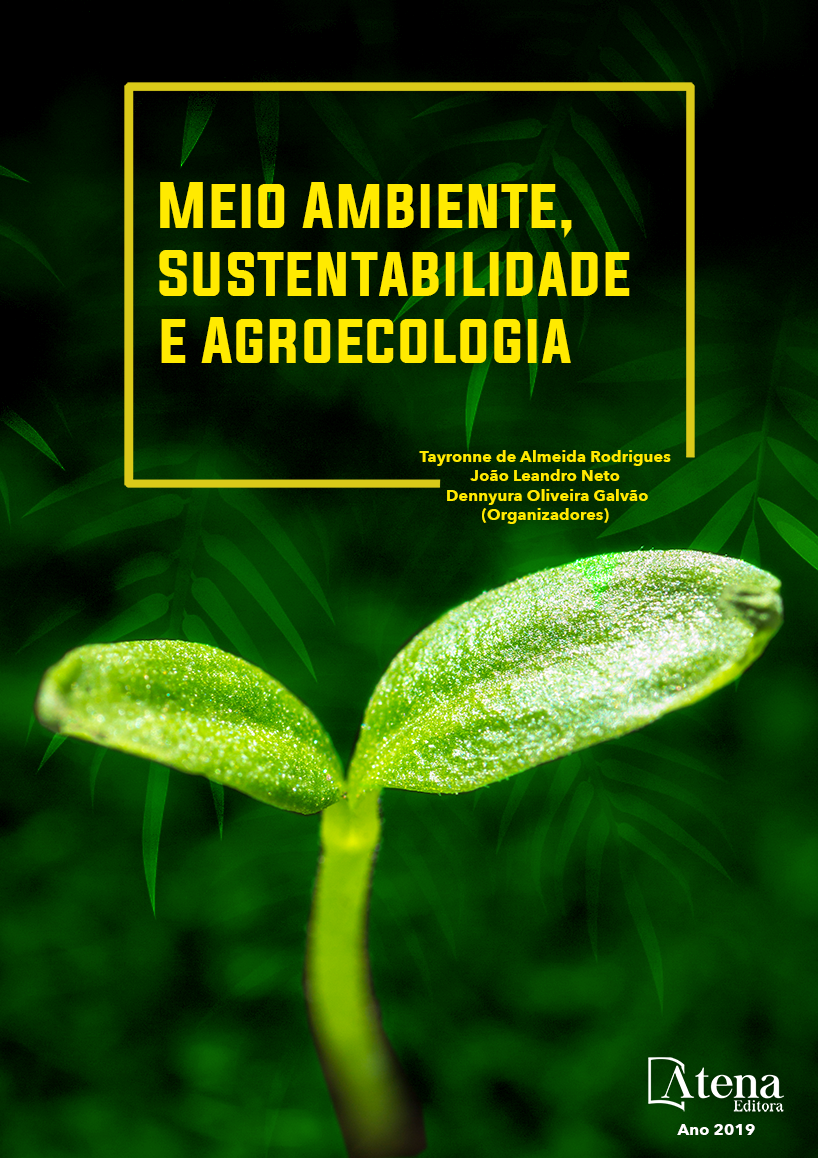
EDUCAÇÃO AMBIENTAL POR MEIO DE PRÁTICAS AGROECOLÓGICAS DESENVOLVIDAS NO ENSINO FUNDAMENTAL DE UMA ESCOLA PÚBLICA DE ALEGRE
A geração de resíduos está
presente em qualquer atividade antrópica,
seja ela produtora ou consumidora. A elevada
quantidade de resíduos sólidos depositada
nos lixões poderia ser minimizada se
conhecimentos sobre compostagem, reuso e
reciclagem fossem disseminados nas escolas,
e consequentemente, introduzidos no âmbito
familiar por meio das crianças. O objetivo deste
trabalho foi apresentar, implantar e analisar a
percepção ambiental dos alunos em relação
a práticas agroecológicas na escola. Esta
pesquisa ação foi realizada junto a 89 alunos
do sexto e sétimo ano do ensino fundamental
da E.E.E.F.M “Professor Pedro Simão”, no
município de Alegre, Espírito Santo. Classificase
como estudo exploratório participativo.
Pode-se perceber que a proposta surgiu como
algo novo na escola, mostrando-se satisfatória
por despertar uma nova ética na educação,
focada na ideia do consumo sustentável
e da preservação ambiental. O ensino
agroecológico torna-se mais efetivo quando
integrado a práticas educativas onde o aluno
vê, na prática, possibilidades que antes só
conhecia teoricamente. Os alunos mostraramse
interessados nas oficinas de compostagem
e reuso. Esta metodologia apresentou-se
simples e útil para atentar aos alunos sobre a
possibilidade de reduzir a enorme quantidade
de lixo que são gerados diariamente. Os alunos
revelaram-se sensíveis em relação ao seu
próprio lixo, ampliando o olhar e a percepção em
relação à importância do reuso como geração
de emprego, como economia de recurso natural
ou ainda como fonte de lazer.
EDUCAÇÃO AMBIENTAL POR MEIO DE PRÁTICAS AGROECOLÓGICAS DESENVOLVIDAS NO ENSINO FUNDAMENTAL DE UMA ESCOLA PÚBLICA DE ALEGRE
-
DOI: 10.22533/at.ed.21719160421
-
Palavras-chave: Educação Ambiental, Hábitos de Consumo, Interdisciplinalidade, Pesquisa ação, Práticas de ensino.
-
Keywords: Environmental education, Consumption habits, Interdisciplinary, Action research, Teaching practices.
-
Abstract:
The generation of residues is
present in any anthropic activity, be it producer
or consumer. The high amount of solid waste
deposited in the dumps could be minimized
if knowledge about composting, reuse and
recycling were disseminated in schools and
therefore introduced into the family environment
through children. The objective of this work
was to present, implement and analyze the
students' environmental perception regarding
agroecological practices in the school. This action research was carried out with 89
students of the sixth and seventh year of elementary school of E.E.E.F.M "Professor
Pedro Simão", in the municipality of Alegre, Espírito Santo. It is classified as participatory
exploratory study. It can be perceived that the proposal appeared as something
new in the school, showing itself satisfactory to awaken a new ethics in education,
focused on the idea of sustainable consumption and environmental preservation. The
agroecological education becomes more effective when integrated to educational
practices where the student sees, in practice, possibilities that previously only knew
theoretically. The students were interested in the composting and reuse workshops. This
methodology was simple and useful to alert students about the possibility of reducing
the enormous amount of garbage that is generated daily. Students were sensitive to
their own garbage, widening their gaze and perception regarding the importance of
reuse as a job creation, as a natural resource economy or as a source of leisure.
-
Número de páginas: 15
- Mariane Pereira dos Santos Souza
- Sâmia D’angelo Alcuri Gobbo
- Ingrid Gabriella da Hora Carriço


